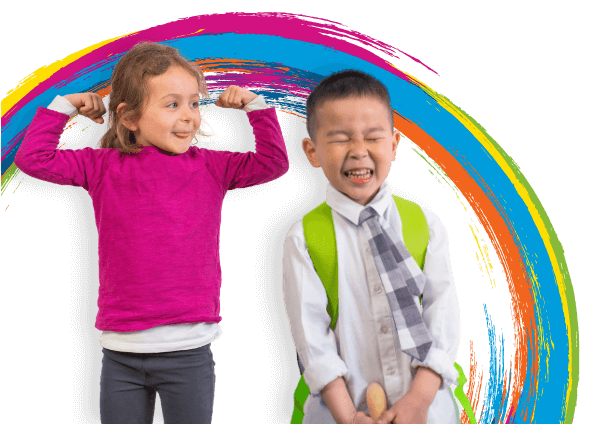
As adults, we know how music can affect our mood. And the effect a quiet, gentle lullaby has on a fussy baby is almost magical. Beyond how it makes us feel, music also can affect the way we learn. It’s one of the few activities that involves using the whole brain.
Inherent in all cultures, music can have surprising benefits not only for acquiring language, improving memory and focusing attention, but also for physical coordination and development. Children who grow up listening to music, develop strong music-related connections that in turn strengthen their language skills.
Music plays a very important part in learning our native language and additional languages. As children, we can imitate the rhythm and musical structure of our mother tongue long before we can say the words. Most of us are able to remember songs and nursery rhymes we learned as children. Music helps us retain words and expressions much more effectively. The rhythm of the music, as well as the repetitive patterns within the song, help us memorize words. Bilingual children, in particular, can benefit from singing songs in their second language. Even if most of the words are unfamiliar at first, mimicking the words in a song can help children practice producing sounds in the new language. Eventually the sounds give way to actual understanding as the song is practiced over and over again.
Exceptional musical ability is common among multilingual individuals. Likewise, musical people learn foreign languages more easily due to their superior ability to perceive, process, and reproduce accents. When listening to music, following the lyrics, melody, rhythm and beat utilizes both sides of the brain.
Start Young. How to Introduce Music to Your Baby.
Play music for your baby. Expose your baby to many different musical selections of various styles. If you play an instrument, practice when your baby is nearby. Remember to keep the volume moderate. Loud music can damage a baby’s hearing.
Sing to your baby. It doesn’t matter how well you sing. Hearing your voice helps your baby begin to learn language. Babies love the patterns and rhythms of songs. Even young babies can recognize specific melodies once they’ve heard them.
Sing with your child. As children grow, they enjoy singing with you. Setting words to music helps the brain learn them more quickly and retain them longer.
Start music lessons early. Young children’s developing brains are equipped to learn music. Most four- and five-year-olds enjoy making music and can learn the basics of some instruments. Starting lessons early helps children build a lifelong love of music.
Encourage your child’s school to teach music. Singing helps stimulate the brain, at least briefly. Over time, music education can help build skills such as coordination and creativity. Learning music helps your child become a well-rounded person. Most of all, it’s fun!







